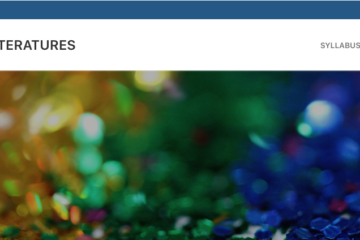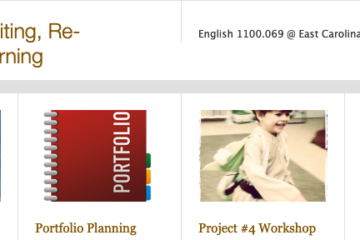The idea that students learn best when they write in all of their courses is probably not an idea that is hard to see to you if you’re a typically English Studies graduate student. In fact, by the time you reach graduate school, you have most likely found that you prefer writing-based projects to other types of assessments or exams. Perhaps you like having some say in what you discover or what path you take; perhaps you appreciate the time and space that an essay or larger project offers you for putting your thinking together, connecting it with the thoughts of others, and then trying to figure out what you’re learned.
That doesn’t make the processes of research and writing any easier, but most likely, this is for you a preferred option to timed exams that focus on the recall of details or the minutiae that interest the teacher more than you. While knowing that writing — as a mode of learning, as a method of organizing our thinking, as a pathway for communicating what’s in our heads to ourselves and others — is central to how we make knowledge and retain information does not make it any less daunting, it does impact how we approach the task of writing and how we understand both the processes and products of composing.
This semester, we’re turning our attention toward Writing Across the Curriculum, to the ways that writing is (and perhaps should be) central to the work of making knowledge in all fields of study. Simply put, there is no creation of knowledge without writing and literacy. No experiment in a lab means anything to anyone if it’s not shared outside of the laboratory experience, probably through written text but at times through other multimodal composition practices, as well. Math proofs = writing. Changes in educational policy and practice happen through writing. Nurses and doctors rely on correctly written charts and other notes in order to save patients’ lives.
At the end of this course, students should have a better sense of the place that writing places in higher education, both historically and today, and should also know a great deal more about how WAC programs are designed, how they are assessed, and how the work to support teachers across the curriculum with teaching writing.


